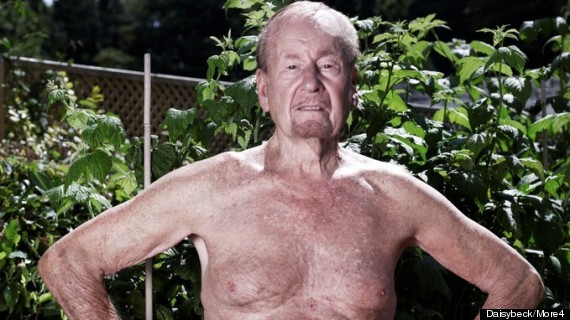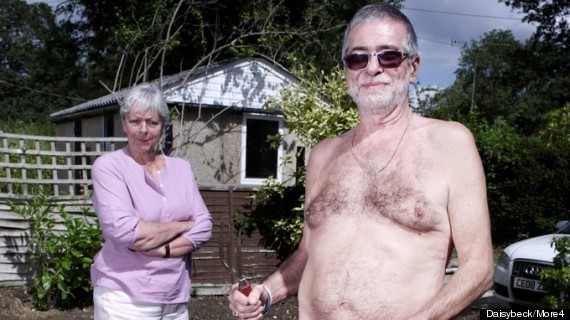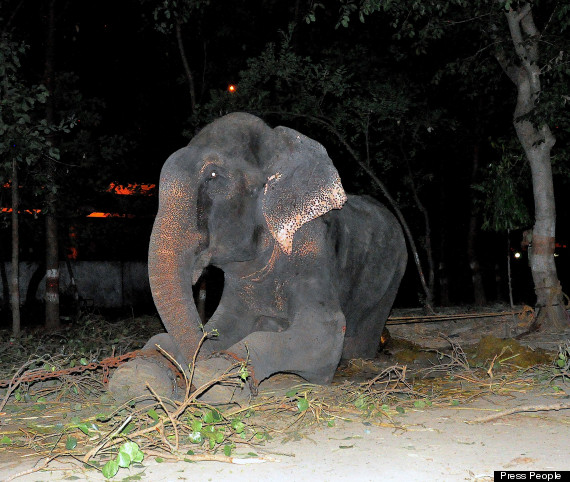The company behind a
controversial genetic test that claims to reveal your risk of cancer or Alzheimer's has defended its decision to launch in the UK, despite its health screenings being banned in the US.
Google-backed 23andMe claims the test results could be relied upon to make lifestyle and health changes - most without consulting a doctor. For £125, the test screens your genes using a saliva sample taken at home.
The test is on sale in the UK from today and 10,000 people in this country have already taken it by ordering it from abroad.
It carries out over 100 different tests on health and genetic traits and claims to predict how likely you are to develop conditions including breast cancer, Parkinson's disease and Anaemia.
The home-administered test also claims to uncover genetic traits such as why people are more prone to smoking, how people metabolise coffee, if they are predisposed to long-distance running and details of their genetic ancestry.
But the Department of Health today warned against relying on the data offered by 23andMe, saying people should "think carefully before using private genomic services as no test is 100% reliable."
The US Food and Drug Authority (FDA) went a step further, banning 23andMe's tests in 2013 because the company failed to provide credible evidence to back its advertising claims.
But according to 23andMe, the new tests are "quite different" from the banned US screenings.
“There have been a number of changes to the health reports that we are offering," she said. "We’ve done a lot of work on them in conversation with the medical community,” Angela Calman-Wonson, the company's vice president of communications, told The Huffington Post UK.
"A lot of it has to do with the fact that we are offering information on things like carrier status [for diseases] and information on how you respond to medication - things which have critical validity and that are well-understood in the medical and scientific community, but have a lot of controversy and debate around them."
![23andme]() 23andMe is part-funded by Google
23andMe is part-funded by Google
Calman-Wonson said that people could use the results of the test to make changes to their lives without speaking to a doctor.
“Many of the tests do not requite seeing a physician to make changes to your lifestyle, except in a few cases. For example, if the test gives you information about how you metabolise a drug, we would not recommend for someone to change their medication without talking to a physician."
She denied that the tests would cause people to seek unnecessary medical treatment, placing additional stress on the NHS. 23andMe claims only 4% of those who have used the test in the UK so far have booked an extra GP appointment as a result.
"Many people talk to their families [after taking the test], or make lifestyle changes, rather than going to the GP."
She added: "It's meant to help inform your choices. It’s a screening test, not a diagnostic. So if you were sick, you wouldn’t take this test to find out what was wrong with you, you’d go to your doctor.”
She said the company, in which Google owns a stake, has now submitted more information to the FDA to try to get the tests approved in the US.
“The FDA determined that we needed to go through the process of being cleared as a medical device, which is above and beyond what other genentic testing companies do. We have our first submission with them, with the data to show the validity of the process.”
The UK tests are CE marked, meaning they have been approved by the European Commission.
23andMe - named after the 23 pairs of chromosomes in human DNA - has already "genified" 800,000 people worldwide.
THE FULL LIST OF TESTS OFFERED BY 23ANDME
GENETIC RISK FACTORS (11)
Alea-1 Antitrypsin Deficiency
Alzheimer's Disease (APOE Variants)
Early-Onset Primary Dystonia (DYT1-TOR1A-Related)
Factor XI Deficiency
Familial Hypercholesterolemia Type B (APOB-Related)
Familial Transthyretin (TTR) Amyloidosis
Hereditary Breast and Ovarian Cancer Syndrome
(BRCA1- and BRCA2-Related, Selected Mutations)
Hereditary Hemochromatosis (HFE-Related)
Hypertrophic Cardiomyopathy
(MYBPC3 25-base-pair Deletion)
Inherited Thrombophilia
(Factor V Leiden- and Prothrombin-Related)
Parkinson's Disease (LRRK2- and GBA-Related)
DRUG RESPONSE (12)
Abacavir Hypersensitivity
Acetaldehyde Toxicity
Clopidogrel (Plavix®) Efficacy
Fluorouracil Toxicity
Hepatitis C Treatment Response
Phenytoin Sensitivity (Epilepsy Drug)
Proton Pump Inhibitor (PPI) Metabolism
Pseudocholinesterase Deficiency
Simvastatin-Induced Myopathy
Sulfonylurea Metabolism
Thiopurine Methyltransferase Activity
Warfarin (Coumadin®) Sensitivity
INHERITED CONDITIONS (43)
ARSACS
Agenesis of the Corpus Callosum with Peripheral
Neuropathy (ACCPN)
Autosomal Recessive Polycystic Kidney Disease
Beta Thalassemia
Bloom's Syndrome
Canavan Disease
Congenital Disorder of Glycosylation Type 1a (PMM2-CDG)
Connexin 26-Related Sensorineural Hearing Loss
Cystic Fibrosis
D-Bifunctional Protein Deficiency
DPD Deficiency
Dihydrolipoamide Dehydrogenase Deficiency
Familial Dysautonomia
Familial Hyperinsulinism (ABCC8-related)
Familial Mediterranean Fever
Fanconi Anaemia (FANCC-related)
G6PD Deficiency
GRACILE Syndrome
Gaucher Disease
Glycogen Storage Disease Type 1a
Glycogen Storage Disease Type 1b
Hereditary Fructose Intolerance
Junctional Epidermolysis Bullosa (LAMB3-related)
Leigh Syndrome, French Canadian Type (LSFC)
Limb-girdle Muscular Dystrophy
Maple Syrup Urine Disease Type 1B
Medium-Chain Acyl-CoA Dehydrogenase (MCAD)
Deficiency
Mucolipidosis IV
Neuronal Ceroid Lipofuscinosis (CLN5-related)
Neuronal Ceroid Lipofuscinosis (PPT1-related)
Niemann-Pick Disease Type A
Nijmegen Breakage Syndrome
Pendred Syndrome
Primary Hyperoxaluria Type 2 (PH2)
Rhizomelic Chondrodysplasia Punctata Type 1 (RCDP1)
Salla Disease
Sickle Cell Anaemia
Sjögren-Larsson Syndrome
Tay-Sachs Disease
Tyrosinemia Type I
Usher Syndrome Type I (PCDH15-related)
Usher Syndrome Type III
Zellweger Syndrome Spectrum
TRAITS (38)
Alcohol Flush Reaction
Asparagus Metabolite Detection
Birth Weight
Bitter Taste Perception
Breast Morphology
Caffeine Consumption
Caffeine Metabolism
Childhood and Adolescent Growth
Earwax Type
Eye Colour
Eye Color: Preliminary Research
Finger Length Ratio
Food Preference
Freckling
Hair Colour
Hair Curl
Hair Curl: Preliminary Research
Hair Thickness
Height
Hypospadias
Iris Patterns
Lactose Intolerance
Male Pattern Baldness
Male Pattern Baldness: Preliminary Research
Measures of Obesity
Memory
Menarche
Menopause
Muscle Performance
Nearsightedness and Farsightedness
Norovirus Resistance
Odor Detection
Pain Sensitivity
Photic Sneeze Reflex
Response to Diet
Response to Exercise
Smoking Behavior
Tooth Development














